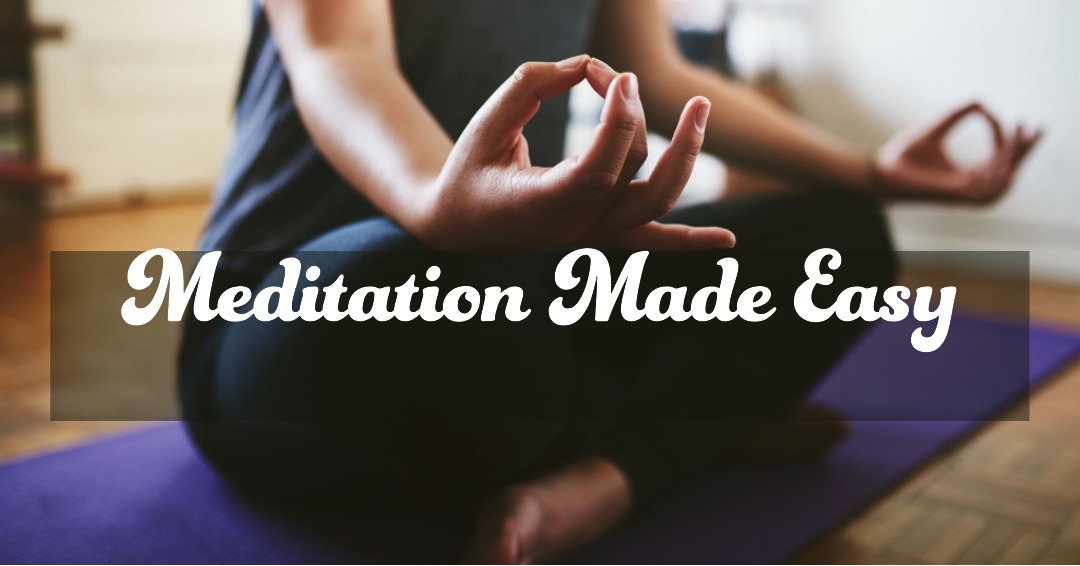Meditation is an ancient practice that has gained popularity in recent years for its numerous benefits for both the mind and body. Through meditation, one can cultivate a deeper sense of inner peace, reduce stress and anxiety, improve focus and concentration, and even boost physical health. Meditation is a powerful tool that can improve your mental and physical health in ways you may not even expect. In this article, we will explore into the power of meditation and how it can improve your mind and body.
Table of Contents
What is Meditation?
Meditation is a practice that has been around for thousands of years. It involves focusing your attention on a specific object, thought, or activity to achieve a heightened state of awareness and relaxation. There are many different types of meditation, including mindfulness meditation, transcendental meditation, and loving-kindness meditation.
How Meditation Can Improve Your Mind
Meditation has numerous benefits on the mind, which include reducing stress and anxiety, improving focus and concentration, boosting creativity and imagination, enhancing emotional intelligence, and increasing self-awareness and mindfulness. Here are just a few of the ways that meditation can improve your mind:
- Reduces stress and anxiety: Stress and anxiety are common in today’s fast-paced world, and they can have detrimental effects on both mental and physical health. Meditation has been shown to reduce the levels of stress hormones such as cortisol and adrenaline, leading to a more relaxed and calm state of mind.
- Improves focus and concentration: Regular meditation practice has been found to improve focus and concentration, which can increase productivity and efficiency in daily life. It also boosts creativity and imagination, as it allows the mind to enter a state of relaxed awareness where new ideas and insights can emerge.
- Increases creativity: Meditation has been shown to increase creativity by quieting the mind and allowing new ideas to surface.
- Enhancing emotional intelligence: Meditation enhances emotional intelligence, which refers to the ability to recognize, understand, and manage one’s own emotions as well as those of others. It can lead to better communication and relationships, both personally and professionally.
- Increasing self-awareness and mindfulness: Meditation increases self-awareness and mindfulness, which means being present and aware of one’s thoughts, feelings, and surroundings without judgment. This can help individuals develop a more positive and compassionate attitude towards themselves and others.
How Meditation Can Improve Your Body
In addition to its mental health benefits, meditation can also have a positive impact on your physical health. Here are a few ways that meditation can improve your body:
- Reduces inflammation: Chronic inflammation is linked to a wide range of health problems, including heart disease, cancer, and Alzheimer’s disease. Meditation has been shown to reduce inflammation and pain in the body, which can be helpful for those suffering from chronic pain or autoimmune disorders.
- Lowers blood pressure: High blood pressure is a major risk factor for heart disease and stroke. Meditation has been shown to lower blood pressure in people with hypertension.
- Boosts immune system: Meditation can also boost your immune system by increasing the activity of natural killer cells, which help fight off viruses and cancer cells.
- Improves sleep: Sleep is crucial for overall well-being and meditation has been shown to improve sleep quality by reducing stress and anxiety, which are common causes of sleep problems.
Different Types of Meditation Practices
There are several types of meditation practices, each with their unique focus and techniques. Some popular types include:
- Mindfulness meditation: focusing on the present moment and being aware of one’s thoughts and feelings without judgment.
- Transcendental meditation: repeating a mantra to achieve a state of deep relaxation and awareness.
- Loving-kindness meditation: directing positive energy and well wishes towards oneself and others.
- Movement meditation: incorporating gentle movements such as yoga or tai chi while maintaining focus and awareness.
- Mantra meditation: repeating a word or phrase to achieve a state of deep concentration and awareness.
Tips for Starting a Meditation Practice
Starting a meditation practice may seem intimidating at first, but with patience and dedication, it can become a beneficial habit. Here are some tips for beginners:
- Find a quiet and comfortable space to meditate where you won’t be disturbed.
- Start with short sessions and gradually increase the time as you become more comfortable.
- Focus on your breath or a mantra to maintain concentration and awareness.
- Maintain a regular practice, even if it’s just a few minutes a day.
- Join a meditation community or seek guidance from a teacher to deepen your practice.
Challenges and Misconceptions About Meditation
While meditation can be beneficial, it’s important to acknowledge the challenges and misconceptions surrounding it. Some common obstacles include overcoming distractions and racing thoughts, dealing with physical discomfort, and finding the time and motivation to practice regularly.
Additionally, some may believe that meditation is a religious practice or that it’s only suitable for certain individuals. However, meditation is a secular practice that can benefit anyone, regardless of their age, gender, or background.
Conclusion
Meditation is a powerful tool for improving both the mind and body. It has numerous benefits, including reducing stress and anxiety, improving focus and concentration, boosting creativity and imagination, enhancing emotional intelligence, and increasing self-awareness and mindfulness. Studies have shown that regular meditation can increase feelings of happiness, optimism, and self-esteem. Meditation can also help in managing symptoms of conditions such as post-traumatic stress disorder (PTSD) and borderline personality disorder (BPD).
By incorporating a regular meditation practice into your daily routine, you can experience the many benefits it has to offer. Remember to start small, be patient, and seek guidance if needed. With dedication and practice, you can achieve a healthier and happier life through the power of meditation.
FAQs
-
How often should I meditate?
You can meditate as often as you like. However, it is recommended to meditate for at least 10-20 minutes per day to experience the benefits of meditation.
-
Do I need to have any prior experience to meditate?
No, you do not need any prior experience to meditate. Anyone can meditate, regardless of their age or experience.
-
Can meditation help in reducing stress and anxiety?
Absolutely! By focusing on the present moment, you can reduce negative thoughts and emotions.
-
Can meditation help in improving cognitive function?
Yes, meditation has been shown to improve cognitive function, including memory, attention, and concentration. Regular meditation can increase the size of the hippocampus, the part of the brain that is responsible for memory and learning.
-
Can meditation help in boosting the immune system?
Definitely! Regular meditation can increase the activity of natural killer cells, which fight off viruses and cancer cells.
I hope this article has shed light on the power of meditation and how it can improve your mind and body. If you want to learn more about wellness and self-care, make sure to check out our website for more articles like this one. Click here to read more and discover new ways to prioritize your health and well-being. Remember, taking care of yourself should always be a top priority.














Leave a Reply
View Comments